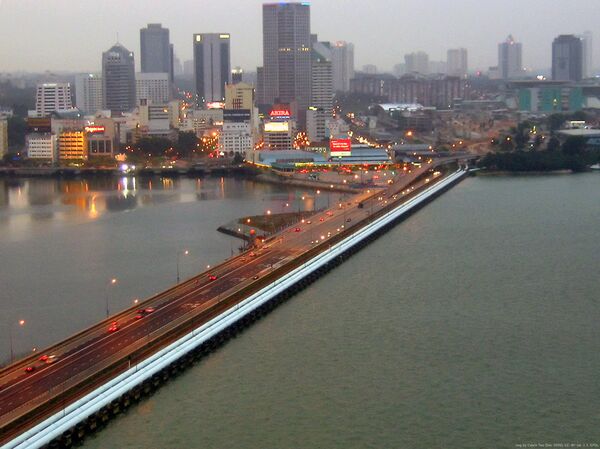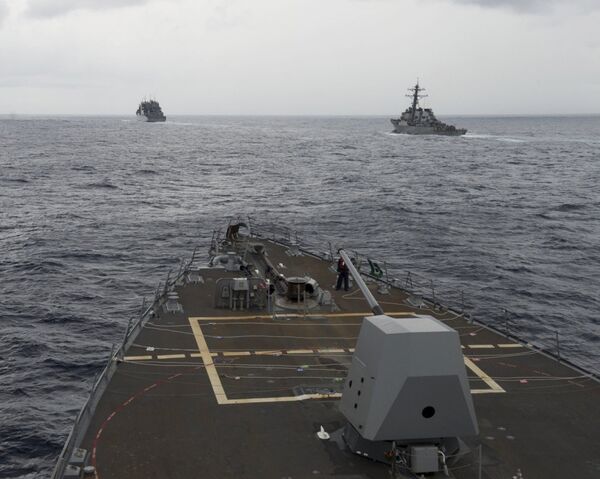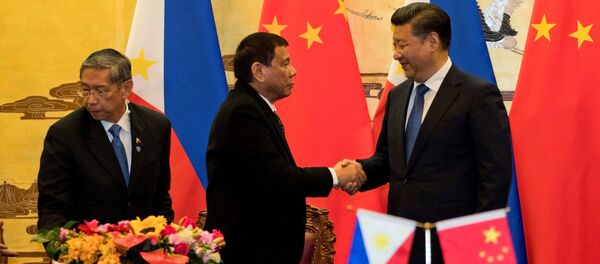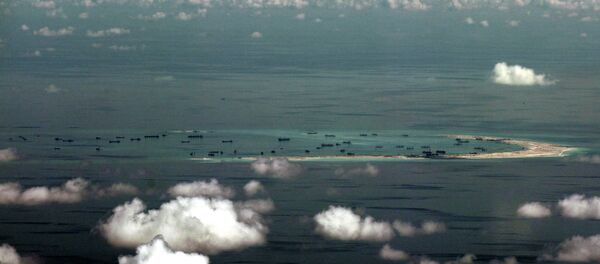It has been largely forgotten that former Secretary of State Hillary Clinton used to be a devoted promoter of America's "Pivot to Asia" concept.
"The Asia-Pacific has become a key driver of global politics… One of the most important tasks of American statecraft over the next decade will therefore be to lock in a substantially increased investment — diplomatic, economic, strategic, and otherwise — in the Asia-Pacific region," Clinton emphasized in her article for Foreign Policy magazine on October 11, 2011.
'Future of Politics Will be Decided in Asia'
Five years have passed, but Clinton's aspirations have not been met. To make matters worse, the US' influence has waned across the Asian Pacific region: emerging ASEAN economies are drifting away from Washington while seeking to strengthen ties with China.
However, Hillary Clinton may get a second chance to accomplish her goal if she wins the US presidential election this November.
Will Clinton toughen US policy toward Beijing if elected?
"Most definitely!" Mathew Maavak, a doctoral researcher in Risk Foresight at Universiti Teknologi Malaysia (UTM) and regular contributor to CCTV, stressed in an interview with Sputnik.
"The Asia Pacific remains a high growth region with the notable exception of Japan and Singapore whose economies are actually contracting," he remarked.
"Curiously, Asia Pacific nations allied to the US are contracting faster than non-aligned states. South Korea's economy is slowing down while Taiwan's economic survival will depend on China," Maavak pointed out.
"The 'Pivot to Asia' should be understood within this backdrop. One by one, Asia Pacific nations are seeing no economic value in being allied to the United States, and they are opting out of the US geo-economic and geopolitical orbits. The Philippines — once penciled as a military anchor of the US pivot — has peremptorily aligned itself with China despite the lingering maritime disputes between them," the researcher explained.

In light of this remaining US regional allies maybe used to "stir up dissention" in the region, Maavak noted, referring to the statement made by Jin Yinan, the People's Liberation Army's (PLA) Major General, who warned Singapore against "playing with fire" in the South China Sea.
"Singapore is not seeking balance among big countries — it is playing big countries off against each other… this is playing with fire," Jin underscored.
"It could be that Singapore, the financial center of the East, may have little choice but to toe Washington's line," Maavak suggested.
Clinton's Flip-Flopping on TPP Project
The recent WikiLeaks release shed light on Clinton's flip-flopping views on the TPP project she previously endorsed.
"As secretary of state, Mrs. Clinton praised the proposed Trans-Pacific Partnership, calling it the 'gold standard' of trade deals. But that was before she jumped into the presidential race. Organized labor, liberal activists and others want to scuttle TPP, so if Mrs. Clinton remained supportive, she risked a political backlash," financial blog Zero Hedge reported last Sunday, explaining why Clinton changed her mind after kicking off her campaign.
Will Clinton really abandon TPP if elected or will she continue to push ahead with the Trans-Pacific Partnership agenda as part of "Pivot to Asia"?
"The TPP is the geo-economic spur of Washington's Asia Pivot. It is subtly aimed at taking down Asian Economies along with the house of cards that is the US economy," Maavak told Sputnik commenting on the issue.
"On the other hand, the ASEAN-China Free Trade Area (ACFTA) has been operational since Jan 1, 2010. Now, this trade compact is being expanded to include nations ranging from India to Japan to Australia under a Regional Comprehensive Economic Partnership (RCEP)," the researcher pointed out.
"The ASEAN region is the pivot here; not the US," Maavak highlighted.
Against this ground Washington can no longer dictate new terms within the TPP framework, he believes.

Clinton Presidency Spells Trouble for the Region
However, "a Hillary Clinton presidency might likely resort to outright regional destabilization," the researcher warned.
In his recent article for New Eastern Outlook Tony Cartalucci points out that the Umbrella Revolution activists are currently trying to spread their activity to Thailand and argues that the 2014 Hong Kong protests traced back to Washington.
At the same time George Soros is raising the alarm about "corruption" and lack of freedom in Malaysia.
"Sure, there is corruption, cronyism and lack of transparency in this region, but the Umbrella Revolution ilk never ponder about the unaccounted $2.3 trillion in Pentagon funds that was revealed by Donald Rumsfeld a day before the Sept 11, 2001 attacks or the Pentagon's $6.5 trillion that went missing during a recent official audit. Or for that matter, Hillary Clinton's pay-to-play scandal that involves tens of millions in donations from terror-sponsoring Middle Eastern regimes with the worst human rights records on earth," Maavak noted.
Besides using global NGO and human rights organizations to destabilize the region, the US may continue to flex its military muscle in the South China Sea, to exert pressure on China.
Maavak assumed that the US may also be eyeing the Straits of Malacca which remains "a lifeline for China's global trade."
"Close of to 80% of China's crude oil imports transits through this waterway. Without a supine leadership in [the Malaysian city of] Putrajaya, Washington will not be in a position to 'patrol' and harass Chinese vessels," the researcher suggested.
"All in all, a Hillary Clinton presidency spells immediate trouble for Asia," the researcher believes.
The views expressed in this article are solely those of the author and do not necessarily reflect the official position of Sputnik.





